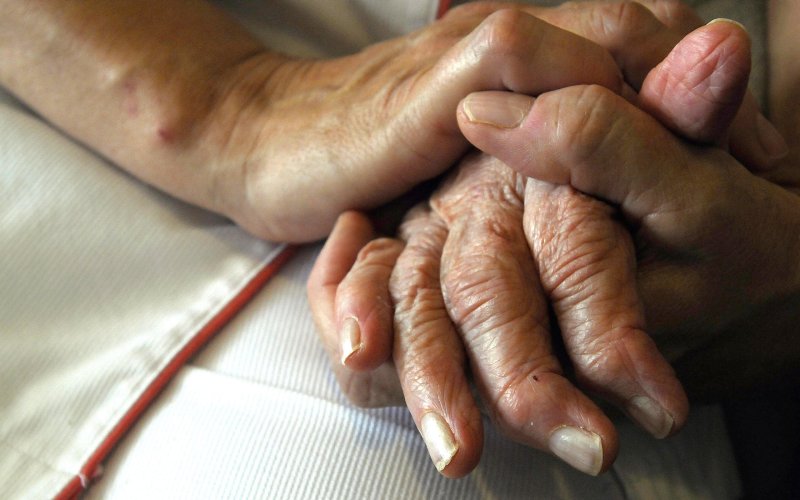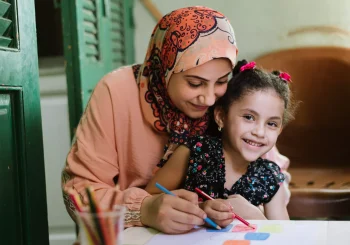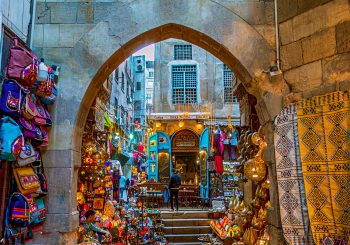The diagnosis of Alzheimer’s disease is increasing worldwide – according to international statistics, the number people affected by the disease are predicted to increase from 44 million in 2013 to 135 million by 2050. In Africa specifically, Alzheimer’s is set to increase by a considerable 325% by 2050. This huge increase will require much more attention when it comes to facilities, care homes and community education about the disease.
The experience of Alzheimer’s in Egypt is surrounded by misconceptions – it is usually seen simply as the memory loss experienced when people get old. However, this is not a correct or specific description of the Alzheimer experience. Alzheimer’s disease doesn’t only affect the memory of the patient but it also affects all cognitive abilities, planning, decision making and abstract thinking.
I decided to make Alzheimer awareness the focus of my doctorate, and as part of this I started to spend many hours with patients at care homes in Cairo and Edinburgh.
Visiting care homes around Cairo enabled me to recognize the suffering that Alzheimer patients go through in Egypt because neither their carers nor their families fully understand the Alzheimer experience. Due to this lack of understanding, patients go through a long journey of challenge, dependency and weakness. To try and remedy this, I started an initiative which aims to develop awareness about Alzheimer’s in Egypt. My goal was to provide education for families and caregivers, enabling them to communicate with patients effectively and therefore offer them adequate help. As part of this, I started to document the experiences I had with Alzheimer patients on Facebook, and the number of queries I received helped me to fully understand the extent of the problem when it comes to lack of information, not only in Egypt but around the Arab world.
The reality of Alzheimer symptoms becomes clear, for example, when you witness the difficulty patients have when structuring sentences, which happens because of a deterioration of language. This deterioration makes them unable to comprehend what is said to them or express what they want. Furthermore, problems with memory loss are not limited to forgetting names of objects or people, but extend to forgetting the use of many objects and how simple tasks are performed.
We need to fully understand the experience of Alzheimer sufferers, as this is the only way that we can help and preserve their dignity. One example of this destructive lack of understanding that I witnessed, which in fact challenged me to start Alzheimer’s awareness work, was when a patient’s family responded to him asking to return home despite being at home by locking him in the house, as they thought he had been hallucinating. After some consultation, they realized that when an Alzheimer’s patient says “I want to go home”, what they often mean to express is a desire to return to the home in which they were born or grew up in. Indeed, a patient often does not remember their current family, but only a past reality.
We have a long way to go in Egypt when it comes to awareness about this disease. However, it is only through understanding and education that we can make the necessary steps to improve the quality of life of sufferers.
Edited by Dalia El Daba







Comments (20)
Amira, thank you for shining a spotlight specifically on Alzheimer’s Dementia. In addition, the people of Egypt and in fact, the world over, could benefit from broadening the focus to include all manners of Dementia: Alzheimer’s Dementia, Vascular Dementia, Mixed Dementia, Frontotemporal Dementia, Lewy Body Dementia, and many more. It’s similar to cancer, cancer is the right and correct umbrella term for a spectrum of cancer conditions and diseases: breast cancer, skin cancer, Leukemia, liver cancer, and so many more. Dementia is no different, there is a spectrum of conditions and journalists and medical professionals can help deepen the discussion to more accurately be inclusive and not exclusive. More hands “on deck” so to speak will make advances in science faster, will breakdown taboo’s and stigma’s more quickly, and increase the likelihood that person-centered care will be become paramount. I’ve been to Egypt, and northern Africa, and met the great and wonderful people of the region… they deserve the best information in order to make informed decisions and to create better lives. Thanks again… let’s keep widening the conversation.
Totally agree with you Kevin
thanks a lot for the encouragement
Thanks Amira for this attention for Alzheimers disease in Egypt. We, ACI Home Care and the Cairo Center of Ageing are working on the development of a Home Care company and training of caregivers. Also the Cairo center of Ageing developed a training for family of the elderly. It is a start but much more needs to be done.
Thanks Elly..hope we can cooperate to spread the information. ..it really make a difference
https://m.facebook.com/dementiaegypt
Please elly check this
it’s the page I created for Alzhiemer awareness
Hello, I was just wondering how far you reached regarding the training of caregivers, are there any support groups or available training’s?